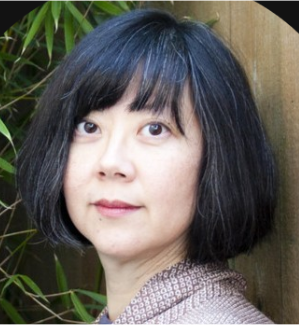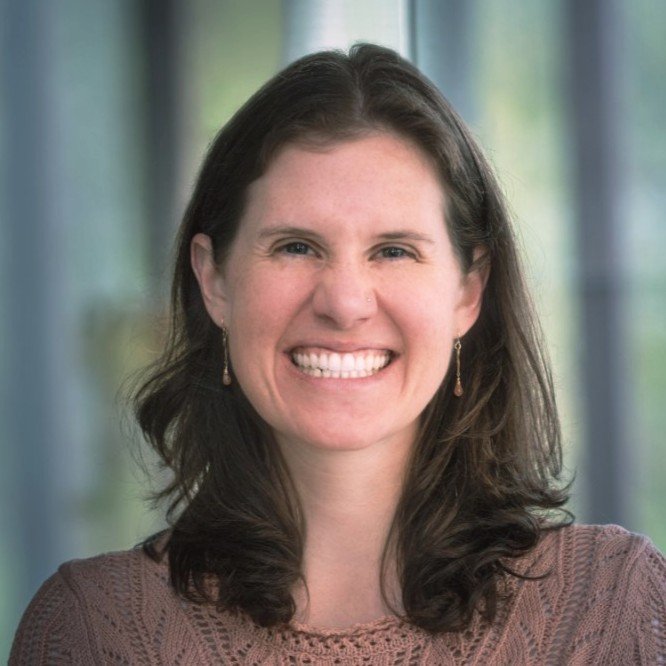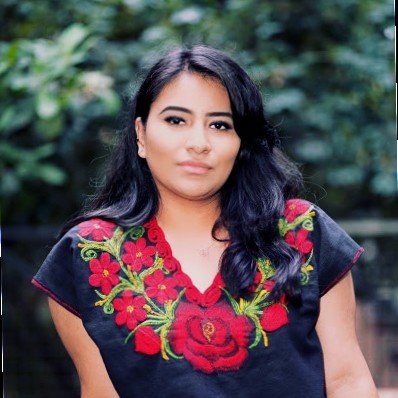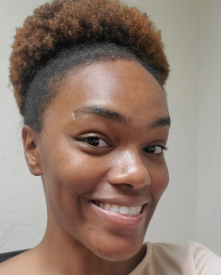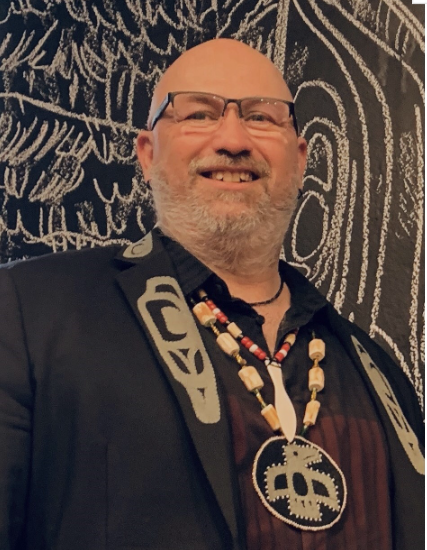Meira Jough
Digital Equity Advisor,
Seattle Information Technology
Interview by Dylan Dang & Dilara Kal
November 14, 2022
Meira Jough is a Digital Equity Advisor at Seattle Information Technology, the city department that handles digital service delivery. There, she identifies Digital Equity gaps in the city and helps put in place programs and policies to address those gaps.
Q. What is your definition of Digital Equity, and what about it motivates you? What are you passionate about in this space?
MJ: My background is in education, working with adult learners on English language, skills, basic reading, writing, math skills. Digital equity to me is where all members of our society have access to the internet, access to devices, and the ability to navigate. This includes all aspects of the online environment, including using the devices using application connecting to the Internet. You know, using an Internet browser paying bills online signing up for benefits, doing online shopping, viewing movies and TV shows online, accessing music, and accessing city resources. So that's what I see as Digital Equity
Q. What principles are important for everyone in this space to do good work?
MJ: One important principle is achieving racial equity because any kind of inequity in our society is based in institutional racism. We have a history of institutional racism based on policies that have been implemented through government. Because of institutional racism, a lot of people have been left out of the system— left out of educational opportunities, left out of career opportunities, and out of pathways that lead out of poverty. Understanding that the legacy of institutional racism is what underlies the digital divide and any kind of inequity, in our society, I think, is an important principle to addressing Digital Equity.
Another important principle to is address Digital Equity is to understand the socioeconomic barriers that exist for people such as if somebody is in a certain specific community with less access to healthy food, or has disability and is not able to take take part in something based on their disability. We need to ask, “What are the socioeconomic barriers that people face?” If you need to go to a class to learn how to use a computer, can you get there? If you're low income, access to transportation may be a barrier. So understanding the socioeconomic barriers, and then addressing those barriers, that's an important principle.
Q. What have been big wins for you?
MJ: One win in the city of Seattle has been Seattle Digital Equity Grants that support community organizations [administered by the city’s department of Information Technology]. I think that's a huge win because it's a recognition that the people who are bridging the digital divide are community organizations that already work closely with communities— immigrant and refugee communities, black communities, people of color, people with disabilities, and so forth. Community organizations that are on already on the ground, already engaging with people, and providing services that are culturally responsive are important to addressing Digital Equity. The city of Seattle recognizes this and has put funding into grants that support these organizations. That is a huge win. It is a competitive process, so not everybody gets grant funding. But the funding is available so that an organization can offer a basic computer skills class in Spanish or provide devices or hotspots to someone at no cost.
How did those grants come about ? What sorts of support were needed for them?
MJ: In terms of supports, one thing that was important was working inter-departmentally within the city. So there is an interdepartmental team made up of people from several Seattle city departments: The Department of Neighborhoods, the Office of Immigrant and Refugee Affairs, the Office of Arts and Culture, and the Human Services department. We all work together to make sure that we're supporting the community to provide digital access because it affects so many parts of somebody's life. We really, as a city, are working together across departments to make sure that those needs are met.
“Community organizations that are on already on the ground, already engaging with people, and providing services that are culturally responsive are important to addressing Digital Equity. The city of Seattle recognizes this and has put funding into grants that support these organizations. That is a huge win.”
Q. What is your Seattle Information Technology’s goal in moving towards digital equity?
MJ: Well, I think it's understanding where the gaps are. We need to understand specifically who really doesn't have access. We have a technology access and adoption study. There's a survey that's going out to every resident [in Spring 2023]. These help us understand where the gaps are:
Where are the gaps relative to different neighborhoods?
Where are people who don't have Internet availability or who can't afford Internet access?
What are the demographic groups that are facing the digital divide?
See, in Seattle we're fortunate in that most of our residents have access to the computer and the Internet, but then that means that the people who are left out are not only left out. but they're locked out of much more because they lack access to how everybody else is doing everything. Online is the new norm. We do virtual meetings. We communicate by email. We go on Internet websites, you know. That's the new norm. So it's great that most of our residents are connected. But what does that mean for those who are not connected? How are they being left out of the benefits of being able to participate in an online environment? So how are our interventions moving to address that cycle? So we have the technology access and adoption study to help us understand these questions.
What steps are being made by Seattle Information Technology to reach that vision?
MJ: We work closely with community organizations to make sure that they have the support that they need. And we work inter-departmentally with other city departments to make sure that we're coordinating as a city to make sure to support people.
Q. What’s an example of some good work so far and who’s been doing it? Who would you like to give a shout-out to?
MJ: So one organization that has been doing great work is the Workforce Development Council of Seattle-King County. They provide support for workers in Seattle, King County, making sure there are career pathways, making sure that people have access to resources and job help. They've been doing a lot of great work in digital equity. They recently received funding to award grants to organizations that provide job support in Seattle, King County, to do more digital equity work in the form of Digital Navigators, and other services. So, this is funding that enables organizations to provide one-on-one, small group, on-demand assistance to someone who needs help navigating the internet and connecting that person with the skills that they need and the resources. Workforce Development Council of Seattle-King County is doing a great job.
We also have the Community Technology Advisory Board for the city of Seattle. This is one of a number of community advisory boards and commissions that provide community expertise on important issues to city leaders. The Community Technology Advisory Board has a Digital Equity and Inclusion Committee, and that group is really trying to advocate for Digital Equity initiatives in the city.
There is also a group called the Digital Equity Learning Network of Seattle and King County which is a network of community organizations that are doing digital equity work. It's a way for people and organizations to coordinate their services and to learn and share resources about what's working and what's not working. That group is also doing great work.
To learn more about Seattle Information Technology
Connect with Meira Jough on LinkedIn.

